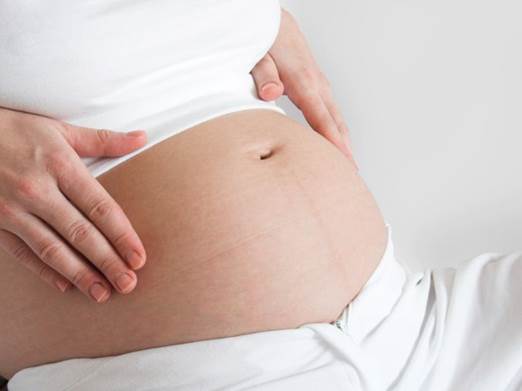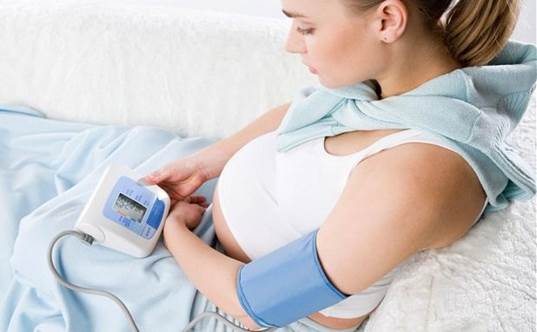Self-medicate a range of pregnancy
symptoms safely with what you eat
Whether it’s swollen feet or seeing stars,
reflux or retching, the tortures your pregnant body inflicts on itself are
certainly inventive. Yet most medicines are on the ‘no’ list during pregnancy.
So trick your body right back: Many foods contain ingredients that can counteract
common pregnancy niggles. Here’s our guide:
1. Nausea
Only a very few lucky women seem to escape
the horrid feeling of nausea, at least for around weeks six to 14 of pregnancy.
The theory is that the rush of the hormone hCG and possibly estrogen, a
hypersensitivity to smell, and the physical changes in a sensitive tummy cause
the sensation.
But isn’t it weird how you can be starving
even while nauseous? This is because, in pregnancy, nausea is often caused by
low blood sugar, explains Shirley Norman, a registered dietician from
Johannesburg. Your body needs extra kilojoules for the work of building your
baby up to 1900 of them a day by the third trimester. “Frequent carb snacks can
help stave off nausea caused by low blood sugar,” says Shirley. “Your body
needs the extra energy, but you can choose low-GI snacks such as a Provita with
Marmite. And tart, spicy flavors such as lemon and ginger steeped in hot water
also seem to alleviate nausea.”

The
theory is that the rush of the hormone hCG and possibly estrogen, a
hypersensitivity to smell, and the physical changes in a sensitive tummy cause
the sensation.
If this doesn’t work:
If you’re losing weight, dehydrating and
battling to keep any food at all down, your doctor may diagnose hyperemesis
gravidarium and prescribe pills which are safe for use in pregnancy.
2. Heartburn
Heartburn or acid reflux occurs when
stomach acids are forced up the esophagus, literally burning your throat. It’s
worse in pregnancy, whether we’re blaming softening ligaments, or less space in
the stomach, that make it easier for gastric juices to force themselves through
to where they’re not welcome.
Eat a papaya. “Paw-paw is known to help
indigestion symptoms because it contains papain, an enzyme that helps break
down food,” says Joburg dietician Busisiwe Mafentile. Also try melon,
cantaloupe and watermelon.

Heartburn
or acid reflux occurs when stomach acids are forced up the esophagus, literally
burning your throat.
Milk or a yoghurt can help, as dairy
products are not acidic, so they act as a buffer solution, absorbing some acid
in your stomach and lessening the symptoms when you do regurgitate. But fatty
foods and heavy tomato-based sauces are known to worsen reflux. For Bolognese
sauce, go easy on the tomato and use half beans, half extra-lean mince to cut
the fat.
If this doesn’t work:
Most over-the-counter heartburn remedies
are now safe for pregnancy, but check with your doctor first.
3. Constipation
Your pregnancy hormones are making your
bowels relax and shift food through the gut slower, while the growing bulk on
your belly can also block things up. Your iron supplement might also be a
culprit. Drink lots of water to soften the stool, exercise to encourage
peristaltic movement – and eat foods known to, you know, stimulate things.
4. Water retention
You are carrying a lot more fluid in your
body while you are pregnant, and your circulation is sluggish. In addition,
your kidneys usually retain water when you eat salt.
But in pregnancy, your kidneys retain water
even when sodium levels go down, because they are primed to divert fluid and
sodium to the fetus.
For that very reason, says Shirley,
“Pregnant women are not usually advised to reduce their salt intake”. Don’t
drink less water either – it won’t make a difference to your kidneys’ water
retention habits.
“Rather go for a swim,” advises Shirley.
“The cold water will help contract your skin and help with that waterlogged
feeling.” Loose clothes, cool weather, putting your feet up and exercise are
better than coffee, as caffeine only acts as a diuretic when you drink large
amounts of it (a no-no during pregnancy anyway).

“Pregnant
women are not usually advised to reduce their salt intake”
Some foods help maintain healthy kidney
function. As potassium can be lost in urine, load up on replacements such as
bananas, beetroot or potatoes.
Citrus fruits are natural diuretics, as are
apples, cucumber, celery, watercress, peppermint and parsley (which also is a
natural antiseptic for the urinary tract). Dandelion leaf tea can also help
eliminate excess fluid.
If this doesn’t work:
Instead of eating them, wrap cool cabbage
leaves around your ankles to draw out moisture. This tip is best known for
soothing engorged breasts while breastfeeding, but it works just as well for
edema (retention).
5. High blood pressure
Your dietary answer here is twofold: less
salt, more potassium (similar to the advice for treating water retention, as
edema and hypertension, another name for high blood pressure, often go hand in
hand). Your omega-3 fatty acids are important because they help relax blood
vessels, as doe’s vitamin C, so add fish and citrus to your diet.
But – wahey! What’s this? Magnesium is also
a blood vessel-relaxer, and it’s found in... chocolate. Have a few pieces a
day, you know, just to be safe. (“But nuts and whole grains are good sources of
magnesium too,” cautions Shirley.)

Have
a few pieces a day, you know, just to be safe.
If this doesn’t work:
The signs of pre-Eclampsia (or toxemia) are
high blood pressure, water retention and protein in the urine. It’s a dangerous
condition, so check it out immediately if you have symptoms.